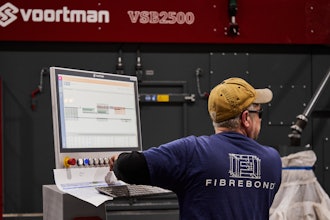FRAMINGHAM, Massachusetts (AP) -- Federal regulators said Thursday that they've found contamination in more drugs made by a pharmacy tied to a deadly meningitis outbreak.
The U.S. Food and Drug Administration said it doesn't yet know the significance of the bacterial contamination discovered in recalled New England Compounding Center products. Some of the bacteria found are rarely cited as a cause of disease in humans. And no NECC products have been tied to reports of infection from the bacteria, the FDA said.
But the agency said the findings bolster concerns about a lack of sterility at the now-closed company. Investigators there have already found standing water from a leaking boiler, filthy floor mats and records indicating drugs were shipped before sterility tests were returned.
The FDA test results were released hours after an announcement Thursday by U.S. Rep. Ed Markey that he'll introduce legislation to strengthen the federal oversight over compounding pharmacies, which custom-mix solutions that generally aren't commercially available. They aren't regulated by the FDA.
Also Thursday, Massachusetts enacted emergency regulations that, like Markey's bill, aim to prevent compounding pharmacies from being regulated like mom-and-pop drug stores if they're actually large drug-making operations.
"Somehow, the New England Compounding Center fell into a regulatory black hole, until it caused the worst public health disaster in our country in recent memory," Markey said.
Markey announced his legislation in a parking lot outside the NECC building in Framingham. A tainted steroid made there, and used to treat back pain, has caused a fungal meningitis outbreak that's spread to 19 states, sickening 377, 28 of whom have died.
The FDA tests results released Thursday found bacteria in three separate batches of betamethasone, a steroid used to treat joint pain arthritis that's different from the steroid implicated in the outbreak.
The agency also noted finding bacteria in cardioplegia solution, a drug used in open heart surgeries. Earlier FDA tests had found one type of fungal contamination in the same product.
The company had no comment on the findings.
Under Markey's legislation, to be introduced Friday, compounding pharmacies would be regulated by the FDA if, like a drug manufacturer, they produce bulk quantities of a medication for general distribution. Officials say that's what NECC was doing, though its state license allowed it only to produce drugs for individual patients with valid prescriptions.
Markey, who sits on a committee with oversight over the FDA, said the company was posing as something it was not to avoid more stringent oversight.
A spokesman for NECC said the company intended to follow the law in whatever state it was licensed in. He didn't comment on Markey's legislation.
The bill also prevents compounding pharmacies from producing copies of commercially available drugs. It requires pharmacies to label compounded drugs to show they haven't been tested by the FDA. And it requires the FDA to compile a list of drugs that aren't safe or effective when compounded.
The legislation is modeled on a 1997 law that was struck down after the U.S. Supreme Court ruled its restrictions on how the companies marketed their drugs violated First Amendment rights.
Markey said his bill avoids that problem by not addressing any marketing restrictions, though he said he still expects the compounding industry to fight it.
David A. Ball, a spokesman for the International Academy of Compounding Pharmacists, said the group was still reviewing the legislation.
"We plan to work closely with members of Congress and their staff in the development of new legislation and/or regulation that will ensure the safest possible practice of compounding," he said.
In Massachusetts on Thursday, the state Board of Registration in Pharmacy passed emergency rules focused on ensuring that compounding pharmacies produce drugs only for patient-specific prescriptions.
The emergency rules require compounding pharmacies to submit biannual reports on how many prescriptions they dispensed and where. They're also required to sign, under the penalty of perjury, affidavits stating that they are only mixing and dispensing prescriptions for individual patients.
Associated Press writer Bob Salsberg in Boston and AP Medical Writer Mike Stobbe in New York contributed to this report.






















